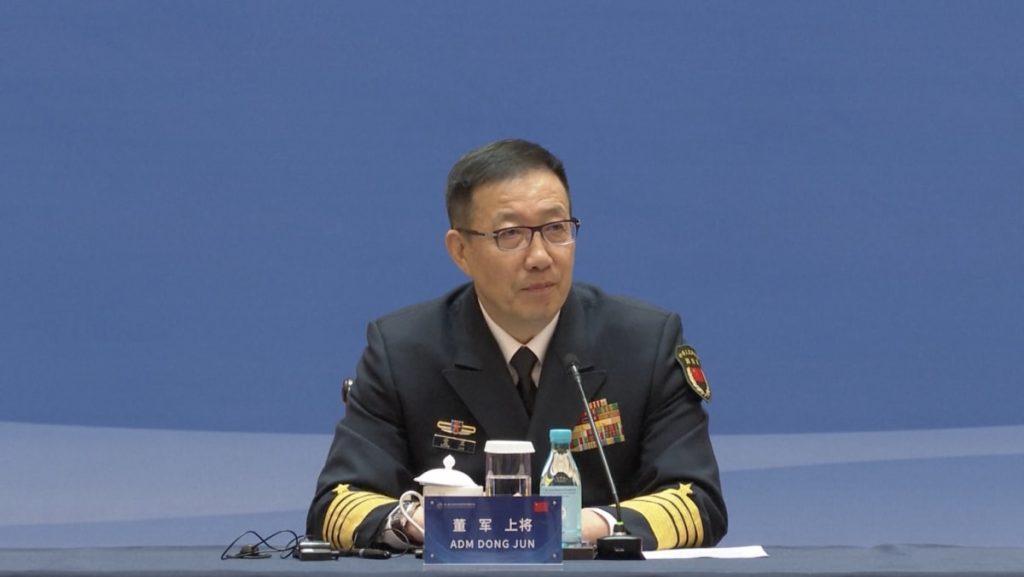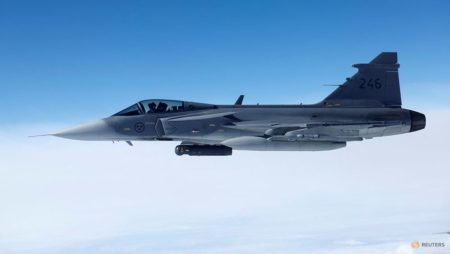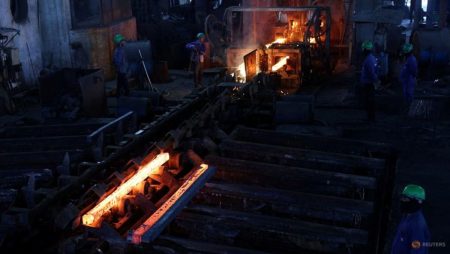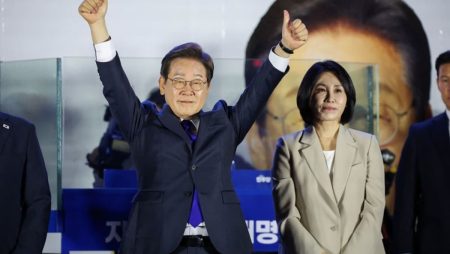The sudden disappearance and subsequent reappearance of Chinese Defense Minister General Li Shangfu have ignited a whirlwind of speculation and analysis regarding his political standing and the potential implications for the Chinese Communist Party’s (CCP) internal dynamics. While his recent public appearance suggests he may have weathered the immediate storm, considerable uncertainty remains about his long-term prospects and the reasons behind his initial absence. Experts are carefully dissecting the situation, considering his relationship to the disgraced former Rocket Force commander, General Li Yuchao, the unusual language used in official pronouncements, and the broader context of power struggles within the CCP.
The initial absence of General Li Shangfu from public view fueled concerns about his potential involvement in the investigation surrounding General Li Yuchao, who was removed from his post under a cloud of suspicion related to corruption and intelligence breaches. The two generals’ shared surname and prior working relationship further fueled speculation of a connection. However, unlike his predecessor, General Li Shangfu does not hold concurrent positions within the Central Military Commission (CMC) and the State Council, suggesting a potentially weaker connection to top leadership figures such as Xi Jinping and Premier Li Qiang. This distinction raises questions about his access to the highest echelons of power and his ability to navigate complex political landscapes.
General Li Shangfu’s eventual reappearance, while seemingly reassuring, has not entirely dispelled concerns about his future. Analysts are closely monitoring his public activities and official pronouncements for clues about his continued influence and standing within the CCP. Some believe his reappearance might be a strategic move to maintain stability and project an image of unity, while others suggest it could be a temporary reprieve pending further investigation. The ongoing investigation into General Li Yuchao and the possibility of additional revelations could still impact General Li Shangfu’s trajectory, making his situation precarious.
The official communication surrounding General Li Yuchao’s removal has also drawn considerable scrutiny. The use of the term “inspection” (jiancha) instead of the more formal “investigation” (diaocha) has sparked debate about the severity of the allegations against him and the potential consequences he faces. Some analysts interpret this as a sign of leniency, possibly due to General Li Yuchao’s close ties to President Xi, while others argue that the distinction is merely semantic and that the English phrasing, referencing a “serious violation of discipline,” indicates a significant transgression. Regardless of the specific terminology used, the public announcement of his removal signifies a serious blow to his career and suggests potential repercussions, including house arrest or worse.
The broader context of these events within the CCP’s internal power dynamics adds another layer of complexity. Some observers speculate that General Li Yuchao’s downfall may be the result of a power struggle between competing factions, with President Xi potentially using the situation to consolidate his control and eliminate rivals. Others suggest that Xi himself may be the target of opposition, with General Li Yuchao becoming a pawn in a larger political game. The opacity of the CCP’s internal workings makes it difficult to definitively determine the motivations and ultimate goals of these power plays.
The unfolding saga of General Li Shangfu and General Li Yuchao underscores the inherent challenges of interpreting political developments within the CCP. The lack of transparency and the often-coded language used in official pronouncements create ample room for speculation and analysis, with experts offering a range of interpretations based on their understanding of the CCP’s internal dynamics. While General Li Shangfu’s reappearance may temporarily alleviate some concerns, the underlying tensions and power struggles within the CCP remain, and the long-term implications of these events are still unfolding. The situation warrants continued close observation and careful analysis to gain a deeper understanding of the evolving political landscape in China. The situation remains fluid, and future developments will likely shed more light on the true nature of these events and their impact on the CCP’s leadership structure.
The case of General Li Shangfu serves as a microcosm of the broader challenges in analyzing political developments within the CCP. The opacity of the system and the carefully curated information flow make it difficult to definitively assess the motivations and intentions of key players. The use of nuanced language and the potential for hidden agendas further complicate the analysis. While experts offer a range of interpretations, the true nature of these events often remains shrouded in secrecy, underscoring the need for cautious interpretation and a continuous reassessment of the available evidence.
The ongoing investigation and the potential for future revelations will likely provide further insights into the complex interplay of factors at play. However, the inherent limitations on access to information and the CCP’s tight control over the narrative make it unlikely that a complete and unambiguous understanding of these events will ever be fully attainable. Despite these limitations, ongoing analysis and careful observation remain crucial for navigating the complexities of Chinese politics and anticipating future developments.
The focus on General Li Shangfu and General Li Yuchao also highlights the importance of understanding the intricate web of personal connections and power dynamics within the CCP. The shared surname, prior working relationships, and potential links to competing factions all contribute to the complexity of the situation. Deciphering these connections and understanding their influence on decision-making is essential for interpreting political developments and anticipating future power shifts.
The events surrounding these two generals serve as a reminder of the ongoing power struggles within the CCP and the potential for unexpected shifts in the political landscape. While President Xi has consolidated considerable power in recent years, the possibility of internal opposition and challenges to his authority remains. The downfall of high-ranking officials like General Li Yuchao underscores the vulnerability even of those seemingly close to the center of power.
The ongoing analysis and interpretation of these events will undoubtedly continue as more information becomes available. However, the inherent limitations in accessing information and the CCP’s control over the narrative mean that the full picture may never be fully revealed. Despite these challenges, ongoing observation and careful analysis remain crucial for understanding the complex dynamics of Chinese politics and for anticipating future developments. The case of General Li Shangfu and General Li Yuchao serves as a valuable case study for understanding the complexities of power, intrigue, and political maneuvering within the CCP.










